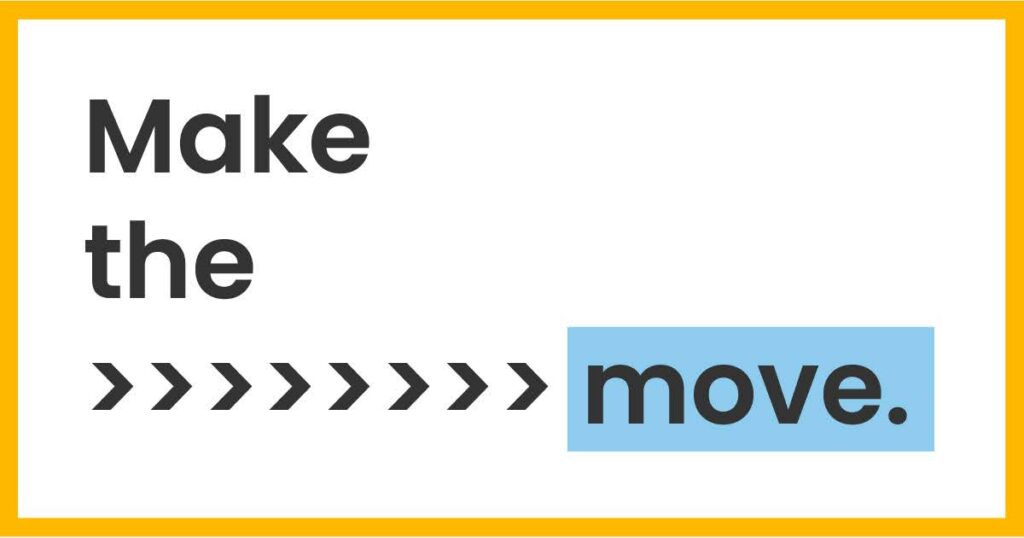
(If number three doesn’t sway you, then there’s nothing we can do.)
In 2023 a website is an essential element to a business or organization, not only for offering basic information and generating leads, but for overall legitimacy. Functioning as a digital storefront, a well-made website has the ability to pull in users, tell a story, and push them toward the next step in engagement. By the same accord, a poorly designed website has the ability to do the opposite. The data is clear that users bounce off pages with confusing navigation, awkward layouts, or complicated content.

In short: it’s important for a website to be good. Despite this fact, some businesses still decide to go the cheaper route by creating quick, thrown-together sites using builder platforms such as Weebly, Wix, Squarespace, and many others. While this might seem like a good (and cheaper) idea at the time, creating and maintaining your website on one of these platforms can end up causing a variety of issues, some of which may not be immediately clear. So, let’s try to make it clear.
What is a “builder platform” and what is WordPress?
Website builders offer pre-made, customizable templates for users to choose from. These platforms can also be referred to as “drag-and-drop” as the intent is to entice beginners with their ease of use. Choose from a variety of already created layouts, and then drag and drop your own content. WordPress is an open-source Content Management System (CMS) that can use a variety of themes, custom coding, and plugins to create a website. The best way to think about it is that WordPress is a platform you build on, and a website builder is a tool you use to build on a platform.
NUMBER ONE: Builder platforms do not have the capability to expand with your business.
Often what seems to happen is a business will take the plunge with one of these builder platforms and over the course of the next few years their business grows, and their needs change. Over time, they discover the need for the ability to integrate certain software, such as POS systems, specific payment gateways, registration processes, or event calendars that their current platform does not support. Or, does not support in the way they need. Without the capability to install plugins (a feature only available through the WordPress CMS), businesses will spend extra time and extra money attempting to find workarounds and use costly third-party services in hopes of achieving what they need. The smarter choice is to create something fully expandable from the very beginning.
NUMBER TWO: The idea that “drag and drop” editing is easier than using WordPress is… just not always true.
The biggest reason one opts for the builder platform is for the perceived ease of use. The idea that a novice or beginner can create a website from the ground up is a huge selling point. And while it is true that these templates can, at first glance, be perceived as simple, that’s really only true if what you’re trying to do on them is also… simple. Clunky interfaces that lack intuitive navigation can actually make anything beyond adding a simple photo more difficult than it needs to be. Since many of these companies have only been around for a few years, they’re still figuring out what is working and what is not for their users. Because of this, paying customers are their guinea pigs that might waste hours on simple tasks. The back end of a WordPress site might look more intimidating, but the mastering of just a few basic items gives you the ability to do just as much, and more. And with the current implementation of Gutenberg Blocks on WordPress, users can create whole websites without any knowledge of coding.
NUMBER THREE: You don’t actually own your website OR ITS CONTENT on a builder platform. Let us repeat: you do not actually own your website or anything on it, they do.
If you are a user of the internet, you might have certain feelings about your own privacy and what’s shared, what’s owned by you, and what belongs to the public at large. In our opinion, one of the biggest risks of making your site on a builder platform is their unabashed claim to its ownership. Not just for the templates, that’s for the content itself. There are some nuances in each company’s terms of service, but most of them are some variation of this, which was lifted directly from the Squarespace Terms and Conditions:
When you provide User Content via the Services, you grant Squarespace (including our third-party hosting providers acting on our behalf) a non-exclusive, worldwide, perpetual, irrevocable, royalty-free, sublicensable, transferable right and license to use, host, store, reproduce, modify, create derivative works of (such as those resulting from translations, adaptations or other changes we make so that User Content works better with the Services), communicate, publish, publicly display, publicly perform and distribute User Content for the limited purposes of allowing us to provide, improve, promote and protect the Services.
This statement refers to the actual content that you’re putting on your website. This is one of the main reasons we encourage website creators to forgo these kinds of companies and make the extra investment in WordPress, which offers you an actual piece of internet real estate. Owning your site also means that (unlike on a builder platform) you have the agency to migrate your website to whichever server you’d like, rather than being forced to stay with their third-party hosts.
NUMBER FOUR: Additional add-ons and upgrades will continue to increase the cost, without improvement in quality or performance.
While builder sites often claim to have everything at one cost and all in one place, the reality is that most of them offer a base for small, low-functioning simple sites containing only a certain amount of space. Once more space is needed, or any additional functionality is required, there is not just a one-time cost for this, but rather you are required to upgrade to a new monthly cost. An increase in monthly fees incurs more costs over the long term, as opposed to paying a one-time fee for a premium plugin (as is the case with WordPress). When this happens, you are not paying for an improved website necessarily, but rather base functionality that is essential for any website. There are also often monthly charges for basic items such as regular website backups, compliance tools, or other baseline functionality.
Let Us Help You Make the Move to WordPress, at a Lower Cost
If you’re already in deep on a builder platform, there are ways to make the transition. If you’ve already invested a lot of time, money, and content to the site it’s not always an easy decision to make the move. The costs associated with having a professional build a custom WordPress website is also daunting, and the process can be lengthy. As a remedy to this, we’re offering an affordable alternative, along with a streamlined process for getting your site off these platforms and live on WordPress with domains, emails, and tools that you own in just a few weeks.

With changing landscapes in the digital world and the use of AI on other tools giving users more power to create on their own, it’s important to be mindful of what’s actually worth it. Short-term, cheap websites can hold their place in some arenas, but if the intent is to expand and keep something up-to-date, secure, and modern, joining the over 40% of websites that currently use WordPress is the way to go.
Lately, there are too many clients who come to us, unhappy and frustrated with companies like Squarespace and Weebly, wanting a way to make it work without a huge upfront cost. Uptown Studios is offering a way to do this, so please visit our website to get a quote, or email us at hello@uptownstudios.net to learn all about how we can help.
Blog Webinars


